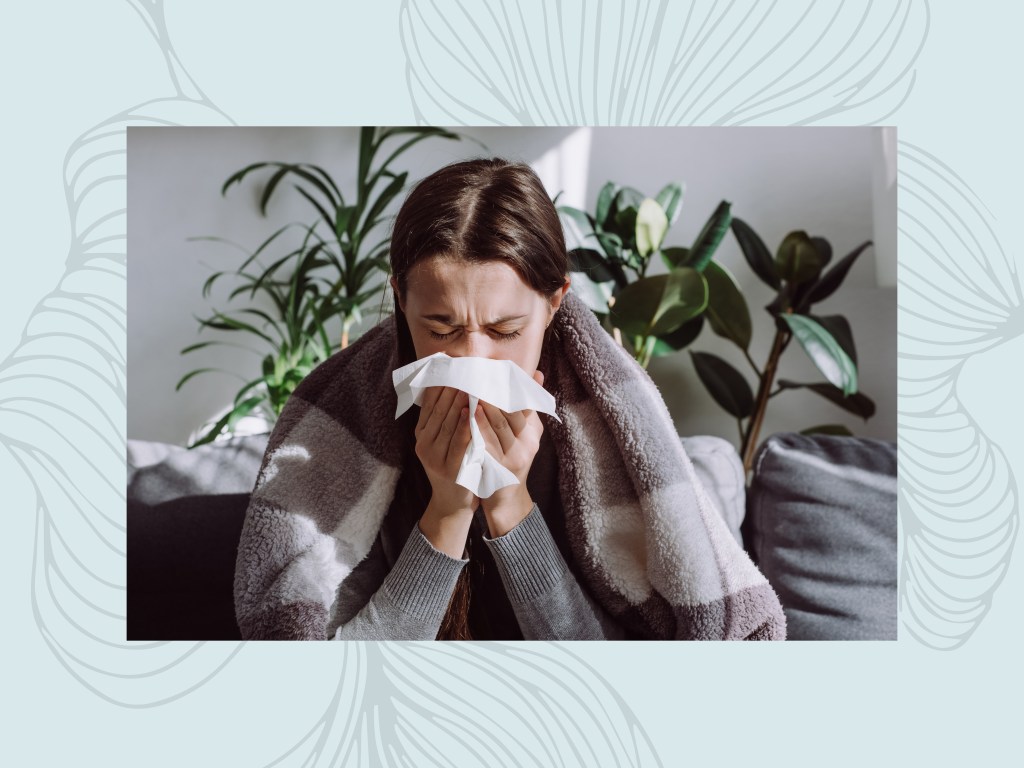

If it feels like it’s taking forever to get over a cold as you age, you’re not imagining things. After countless face-offs with viruses and foreign pathogens, your immune system’s defenses start wearing down as you get older. This can translate to longer recovery times from injury or illness.
“Your immunity is at its peak in adolescence and around the 20s to 30s, the immune system starts to be less vigorous and active,” says Dr. Tammy Lundstrom, a senior vice and chief medical officer at Trinity Health. As you get older, it can have a real impact on your health, she says, and is a key reason why older adults are more susceptible to cancer and severe illness.
There are, however, steps you can take to slow the decline. Here’s how you to boost your immunity as you age.
The immune system becomes less effective as you age because several lines of defense start to dwindle, explains Dr. Diane Cymerman, a specialist in Allergy, Asthma & Immunology at Stony Brook Medicine.
Think of lymphocytes as the special ops of immunity. These white blood cells are important in fighting infection, inflammation, and wound healing. T-cells are the type of lymphocyte which act as the first line of defense against a foreign invader, destroying it and any abnormal cells that have, for example, been taken over by a virus or turned cancerous. B-cells are another type of lymphocyte which are responsible for making antibodies. Macrophages are a type of white blood cell that swallows up bacteria and destroys any damaged cells.
As you age, these cells start to function less effectively. The cells may take longer to respond to an incoming threat or overlook damaged or infected cells — making it easier for cancer or germs to grow in the body. Vaccines, which require an immune response, are also less effective as you age, though they become even more important in helping your body fend off illness. And the thymus gland, the producer of white blood cells, shrinks and weakens over time.
Decreasing hormone levels during perimenopause and menopause also contribute to the decline in immunity. Reproductive hormones like progesterone help suppress inflammation, while estrogen is associated with an increased number of antibodies. The absence of these hormones is linked to lower numbers of T- and B-cells as well as an increased risk of infection.
The good news is: There are ways you can to boost your immunity as you age. These include:
Get enough sleep. Of course, this is easier said than done, especially during perimenopause and menopause when hot flashes and hormonal changes can interfere with your sleep. But sleep gives the immune system the chance to reset, as stress hormones decline when we sleep and allow the immune cells to do their work. Sleep loss and insomnia can also increase inflammation, which increases the risk for developing chronic conditions like heart disease and diabetes.
Lower stress. Chronic stress suppresses your immune response, and can eventually lead to an increase in inflammation. It also can be related to a drop the body’s white blood cell count, which makes it harder to fight off infection.
Exercise. While exercise is technically a form of stress, because it causes a spike in levels of cortisol, it’s actually a good type of stress, says Dr. Cymerman. The stress from exercise actually can strengthen your immune system and make it more resilient.
Eat a healthy diet. Dr. Lundstrom recommends eating meals rich in leafy vegetables while limiting red meat and refined carbs. The nutrients in plant-rich diets, for example, feed the ‘good’ bacteria in your gut that can stimulate immune activity. They can also act as antioxidants to protect healthy cells and create more antibodies. Indirectly, eating healthy lowers the risk of diseases that further weaken the immune system, such as obesity and Type 2 diabetes.
Stay up to date on vaccinations. With an aging immune system, both experts emphasize the need to stay up to date on their vaccinations. Older adults may require a higher dose or adjuvants (an ingredient that can prompt a stronger immune response) so that the immune system responds better to vaccination.
Consider supplements. If you decide to take supplements (and it’s always a good idea to check in with your healthcare provider before starting a new supplement), Dr. Cymerman recommends taking the recommended amount of vitamin D, which is essential for immunity. “The basics are really important. There is nothing fancy or an immune pill to help. Eat well, sleep well, keep your fluids up, get your exercise, and get your vaccines,” she says. “All of these work synergistically to make you healthier.”

Source: Read Full Article
